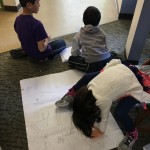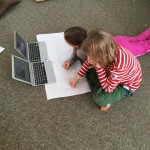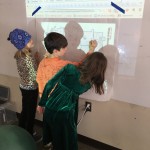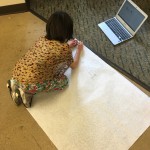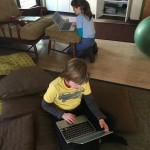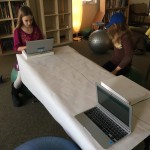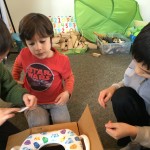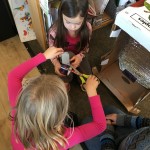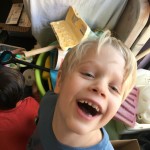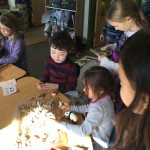SimCityEdu
We’ve been digging more deeply into our exploration of systems and cities with the help of SimCityEdu, a simulation game where the students have to solve civic problems related to access to education, the economy, and pollution. They began by exploring the city, learning more about the different zones and what happened there.
While there are specific challenges assigned, a tour of the city revealed smaller problems in the city related to density, health care and other issues. We will begin to make connections between these problems and the various systems involved.
The first assigned challenge was to improve student enrollment by placing additional bus stops around the city. The students learned more about zoning and had to be strategic with where they placed the signs. Noting residential areas with low enrollment, the students focused on placing stops here.
Systems Thinking
We’ve also been learning more about systems and their components using the work of Linda Booth Sweeney. This week we are focusing on what makes systems unique and dynamic, as well as causal connections and feedback loops.
Problem Solving
A bit back we learned more about attitudes and approaches that hindered our ability to solve problems. This week we are focusing more on the steps involved in problem-solving including understanding the situation, finding the root cause, developing an action plan and executing and modifying the plan until the problem is solved. While students have been solving problems their whole lives, it’s helpful to have a framework to name and describe what they have been doing intuitively and maybe identify the parts of the process that they find difficult.
Space Stations
Last Friday, we helped the Kindergartens problem solve as they built their space station. It was great to see the two classes together, sharing ideas and resources to bring their designs to life. The students couldn’t wait to do it again and future collaborations are in the works.
Commonplace Books
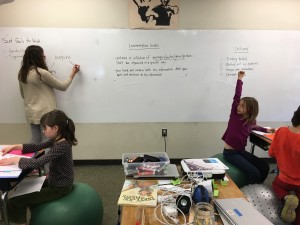
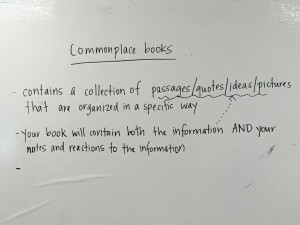
As and creators and thinkers, we find inspiration in the many worlds we inhabit, be it nature, stories, poems, visual arts, music or any of the other ways humans express themselves. Taking note of what resonates lays the foundation for future creative work. Thinkers, writers, and artists all have ways of recording inspiration. We will be following in the footsteps of those that use Commonplace Books.
Commonplace Books are a place for students to capture the things that inspire them during their daily travels. They will be using them to record quotes, ideas, phrases, character profiles, images and illustrations and big questions – anything that resonates with them. Putting these to paper and then reflecting on connections, patterns, and the truths within these works will help students grow as thinkers and creators.
